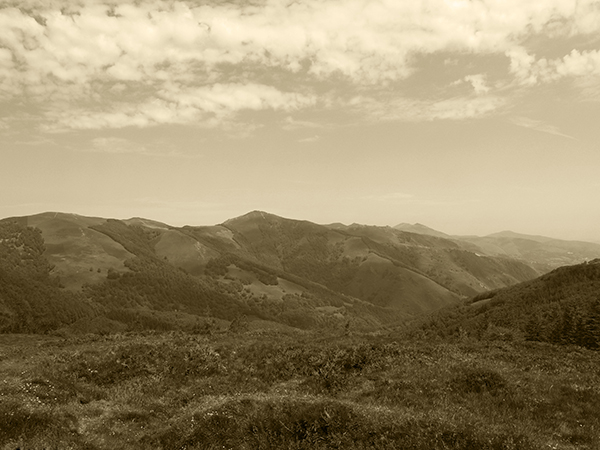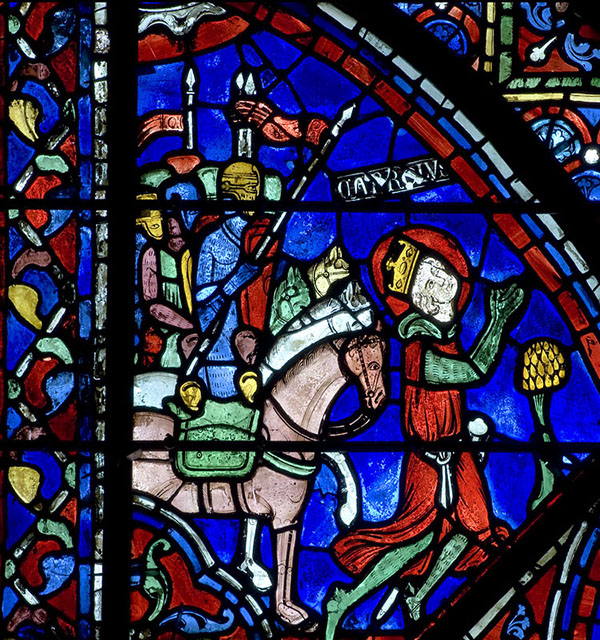Historical or historically-inspired events like the Battle of Errozabal not only transformed into legends but also evolved into epic narratives, captivating audiences throughout the ages. Specifically, the Battle of Errozabal incorporated four crucial elements that established it as one of the earliest and most celebrated epic songs of Western European legend:


- Heroism, martyrdom, and the eternal struggle between good and evil: The Song of Roland (Chanson de Roland) is essentially a story of heroism, with the betrayal by the deceitful Ganelon leading to the gallant martyrdom of Roland. The Carolingian peers exemplify eleventh to thirteenth-century literary values of courage and honor, alongside their derivatives—talent and strength. This glorification of violence serves a just and necessary cause, boasting arrogance and self-reliance derived from the certainty of living for a purpose greater than life itself—the promise of life after death through memorable deeds. In this narrative context, men become giants, and their deeds are magnified, utilizing literary figures such as hyperbole, reinforced by the use of literary techniques like heavy adjectivation, repetition, alliteration, and parataxis.
- The Religious Element: The timing of the Song of Roland's manuscripts (between 1140 and 1170) coincides with the religious fervor of the era, notably influenced by the Crusades. Urban II’s proclamation of the First Crusade at the Council of Clermont in 1095, followed by Bernard of Clairvaux's call for a Second Crusade after the fall of Edessa in 1144, shaped the narrative to transform a historical Frankish military campaign against the Basques into a legendary crusade against Islam. This reimagining made Charlemagne a spiritual beacon for Western Christianity and a pivotal figure in the Way of Saint James in the air of the harangues of Bernard of Clairvaux before the capture of Jerusalem by Saladin (1187).
- Historical Background: The Song of Roland is set in a legendary and distant past, a time and place vague enough to allow the poet freedom to craft the characters and their actions suitably epic for the song. This historical basis—one of the essential ingredients of epic songs—served to transport audiences from a quasi-realistic past to a virtually possible future, enhancing patriotic and religious sentiments among the people while solidifying their patriotic and religious sentiment.
- Exotic Milieu: The backdrop of foreign civilizations and the journey of heroes facing mysterious, strange and unfamiliar nations in distant and unknown lands was also an essential ingredient of epic literature. In this case, the Basque Country and the formidable and fearsome Zize Pass provided an exceptional scenic setting that enriched the narrative, making it more engaging and vivid.
The dissemination of the story of the Battle of Errozabal in Europe is well-documented, such as in the Vita Hludowici Pii imperatoris written around 840 by the Astronomus Limusinus. The chronicler mentions his omission of the list of the dead, noting their names were widely known (Quorum, quia vulgata sunt, nomina dicere supersede), reflecting the story's broad reach and impact. By the tenth century, the naming of male siblings as Roland and Oliver became common, highlighting the transcendent popularity of these characters beyond mere historical or literary confines. Centuries after the original events, the epic continued to have a profound impact and inspirational influence. William of Malmesbury, in his Gesta Regum Anglorum (Chronicle of the Kings of England), records that during the Battle of Hastings in 1066—288 years post-Errozabal—the bard Taillefer sang stanzas from the Song of Roland to boost morale and solidarity among the troops:
|
Then Taillefer, who sang right well, rode, mounted on a swift horse, before the duke, singing of Charlemagne and of Roland, of Oliver, and the peers who died in Rencesvals. |
Then Taillefer, who was a very good singer, rode on a swift horse in front of the duke, singing about Charlemagne, and about Roland, Oliver, and the knights who died at Rencesvals. |
It is highly probable that the verses recited by Taillefer, one of the many minstrels who perpetuated the tradition, differed from the version of the Song of Roland attributed to Turoldus that has reached us. Given that the text was transmitted orally over three centuries, it likely underwent variations. Furthermore, the language used by Taillefer to intone these passages might have varied slightly or even significantly from that of the Turoldus version.